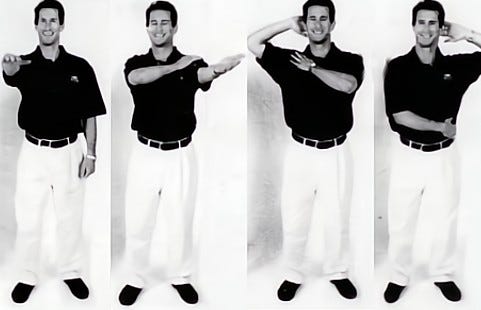No More Random Police Stops on Florida Waters, Unless by the Coast Guard
Governor Signs 'Boater Freedom Act'
As of July 1, police in Florida will not be permitted to pull over and board recreational vessels without probable cause to suspect a violation of law. In other words, officers will have to actually see a boater operating unlawfully or have prior information that a crime was being committed.
That means no more random flare and lifejacket checks on “Boater Skip Days,” sandbar rallies and Trump boat parades—or at any other time. Not by Fish & Wildlife officers, not by Sheriffs’ marine patrols, not by municipal police.
Of course, the Florida law in no way affects the power of the U.S. Coast Guard to board any vessel at any time at home or any U.S. vessel anywhere in the world.
Governor Ron DeSantis, standing by a “Boater Freedom Act” poster signed the bill into law yesterday. DeSantis has cited the case of a Florida man wrongfully arrested for boating under the influence last year. Based on observation alone, a young Fish & Wildlife officer handcuffed and took Michael Christian Arrieta, 36, of Jupiter, to jail even though a breathalyzer test later showed he had zero alcohol in his system.

As some Clay News & Views readers might know, the author writes another Substack newsletter called Loose Cannon, which covers boating news. In fact, today’s story first appeared in Loose Cannon.
When it happened last year, Loose Cannon covered the Jupiter man’s arrest satirically, writing that Florida would heretofore adopt a field sobriety test requiring BUI suspects to dance the Macarena. Surprisingly, several readers took the story seriously, this being Florida after all. (Note to self re: humor.)
But seriously, DeSantis said, overzealous enforcement threatened to ruin the on-the-water experience in a state where boating puts more than $30 billion into the economy. He cited another example of someone’s bad day on the water.
“When you’ve got somebody that’s stopped three times in one day with there even being a basis to stop them, you know there’s something wrong,” he said. “The way we do things in America, government is supposed to leave you alone.”
No mention was made during the press conference of HB-481, which allows further anchoring restrictions in the state’s most populous counties, even as it awaits the governor’s signature.
While civil libertarians applaud the new probable-cause requirement, one veteran Fish & Wildlife officer observed that police continue to have options for stopping boats along the lines of a broken taillight on roadways. A single missing numeral from stick-on registration numbers, a bonehead maneuver or creating a wake in a no-wake zone will trigger probable cause, he said.
The officer conceded that while the Jupiter man’s post-arrest 0.0 blood-alcohol test result was unusual, it was not the first time that had happened. He admitted having seen several such BUI arrest mistakes during his long career.
He said Fish & Wildlife officers were divided in their opinions on the new law. “Speaking as a citizen, I have no problem with probable cause,” he said. “Let’s do it for five years and see what happens. If deaths and injuries increase, we can always put it back to the way it was.”
Fourth Amendment’s ‘Burial at Sea’
The Coast Guard’s power to conduct suspicionless boardings at sea was enshrined in law by the Supreme Court in a 1983 marijuana case. In his long dissent, Justice William Brennan made an argument that should ring true to many readers—a boat is akin to one’s home and should only be entered with a warrant or consent of the owner.
“A boat may serve essentially the same function as a summer vacation cottage—a residence albeit a temporary one. In either instance, the occupant would quite reasonably suppose that he was entitled to remain undisturbed by arbitrary government authority.”
The 1983 ruling does not mean that the Coast Guard could not apply a probable-cause standard as a routine matter of policy, however. After all, the Coast Guard is widely seen as having been overtasked and underfunded.
Over the years, the author has sought answers from Coast Guard on the existence of any statistics that show random boardings had been effective in arresting criminals, preventing crime or saving lives. Nope. Either no such data exists, or it could not be easily accessed.
For sure, Coasties have discovered untold thousands of expired flares over the decades, and now with a new emphasis on migrant interdiction, there is probably a greater chance than ever that a Coast Guard boarding of an ordinary looking vessel will hit the illegal-alien jackpot.





“Speaking as a citizen, I have no problem with probable cause....”
Gee. How generous of him.
As a long time boater in Clay County and on the River, I have been stopped multiple times for no reason other than inspection. I have even been stopped twice on the same afternoon in my pontoon boat.
Most boater feel more harassed rather than helpful. There are too many idiots boating for them to apprehend.